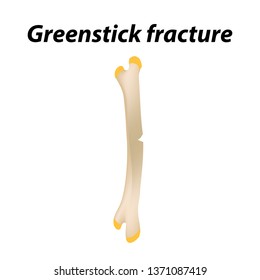Are Chiropractic Care Adjustments Habit-Forming? Identifying Fact From Misconception
Are Chiropractic Care Adjustments Habit-Forming? Identifying Fact From Misconception
Blog Article
Post Writer-McKay Nygaard
You may have listened to that chiropractic care changes can cause an addicting dependency, however that's a typical false impression. Many individuals locate alleviation without creating any type of kind of addiction. It is necessary to understand real function of these adjustments and exactly how they suit your total wellness technique. So, what exactly does the science state concerning chiropractic treatment and your wellness? Let's discover the realities.
Comprehending Chiropractic Adjustments and Their Objective
When you think of chiropractic modifications, it's important to comprehend their function and just how they work. what does it mean when your lower back hurts aim to deal with misalignments in your spinal column and joints, advertising far better positioning and movement. By applying regulated force to details areas, chiropractic doctors assist ease pain, improve function, and improve your general wellness.
Chiropractic treatment focuses on your body's capability to recover itself, stressing the connection in between the spinal column and the nerve system. When your spinal column is lined up, it can decrease nerve interference, enabling your body to operate ideally.
Routine changes may likewise help stop future concerns, keeping you active and pain-free. Inevitably, chiropractic adjustments serve to support your health and wellness, enhance mobility, and improve your quality of life.
Common Myths About Dependency and Chiropractic Care Treatment
Lots of people hold false impressions regarding the relationship between chiropractic care and addiction treatment. One usual misconception is that chiropractic adjustments develop an addiction-like dependency. Actually, many patients find relief from discomfort and pain, but this doesn't suggest they develop a psychological or physical dependency.
One more misconception is that chiropractors are just trying to maintain you returning for more changes. Most chiropractic practitioners prioritize your wellness and aim for lasting health and wellness instead of frequent check outs.
In addition, some think chiropractic care can replace typical addiction therapies, however it should match, not replace, evidence-based therapies. Comprehending these misconceptions can aid you make educated options regarding your wellness and health without dropping victim to misinformation.
The Science Behind Chiropractic Adjustments and Individual Experience
While some may question the efficacy of chiropractic changes, an expanding body of research study sustains their duty in relieving pain and improving general function.
Researches indicate that spine manipulation can decrease discomfort from problems like lower neck and back pain, tension migraines, and neck pain. When you undergo chiropractic care, the modifications intend to recover correct alignment, enhancing your body's natural healing capabilities.
Numerous patients report enhanced flexibility and a higher feeling of wellness after therapy. Additionally, the restorative relationship you construct with your chiropractor can enhance your experience, as they provide tailored treatment customized to your demands.
This combination of scientific backing and favorable client experiences assists clear up why chiropractic care modifications are effective for numerous individuals seeking alleviation.
Verdict
Finally, chiropractic care changes aren't addicting; they're created to enhance your wellness and promote proactive health maintenance. By disproving Read the Full Post bordering dependence, it's clear that these therapies can provide significant relief without creating a cycle of addiction. Accepting chiropractic care as a complementary approach to conventional therapies can result in much better health results. So, if you're thinking about modifications, rest assured that they have to do with improving your quality of life, not creating a dependence.
